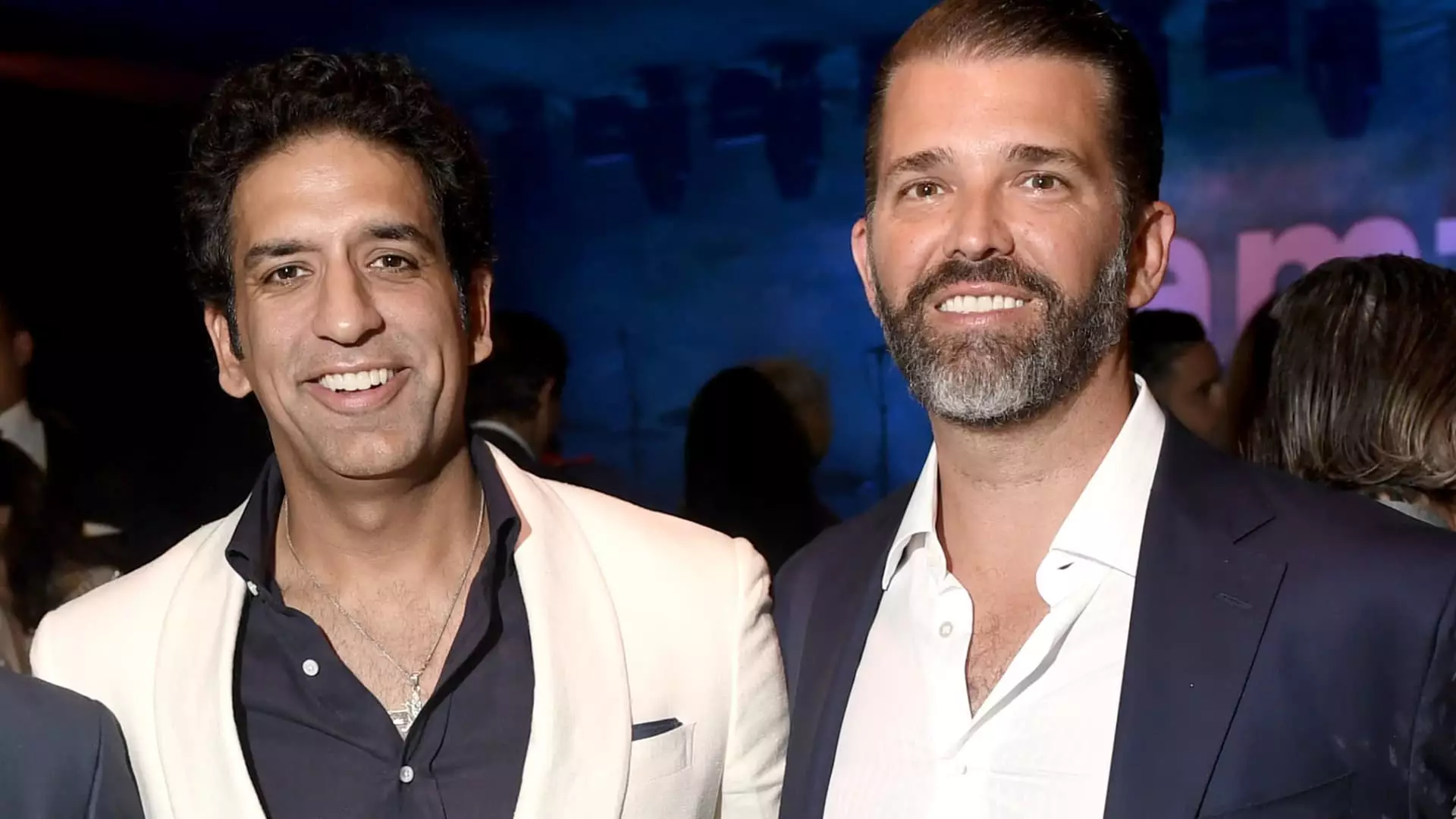The recent inauguration of Executive Branch, an extravagant private membership club in Washington, D.C., has created ripples of intrigue within socio-political circles. Co-founded by Donald Trump Jr. and an entourage of affluent entrepreneurs and former administration officials, the club demands a staggering $500,000 membership fee. While the digits may seem exorbitant, a waiting list already burgeons, reflecting an unsettling trend in the intersection of wealth, influence, and exclusivity. This venture raises a plethora of questions about the nature of privilege and its increasingly blurred lines with our democratic fabric.
The Coterie of Power and Influence
The club’s launch party drew an array of powerful figures, including notable members from President Trump’s former administration and affluent business leaders. This gathering of elite influencers is emblematic of a broader trend wherein a wealthy few congregate, shaping policies and social narratives behind closed doors. The apparent coalescence of politics and high finance at Executive Branch is disconcerting, as it feels almost preordained that members will use their networking opportunities to bolster not just personal interests, but also to influence public policy in insidious ways. This is not merely a private club; it risks becoming a clandestine hub for rule-making absent public oversight.
Exclusivity at a High Price
The $500,000 entry fee starkly differentiates Executive Branch from other private clubs, expanding the socioeconomic gap among citizens. For context, most exclusive clubs typically charge fees between $4,000 and $10,000, with some premium clubs peaking at around $200,000. The astronomical price tag seemingly serves as both a barrier and a badge of honor, further entrenching the idea that wealth equates to privilege and influence. Such stark differentiation raises ethical questions: Should access to political discourse and policy influence be gated by financial capacity? Why does this club symbolize a new echelon of elitism, one that actively seeks to keep the average citizen at arm’s length?
The Shadow of the Trump Hotel
Many insiders speculate that Executive Branch will fill a social void left by the Trump International Hotel, which previously served as a key gathering place for politicians and corporate leaders. However, the hotel also drew significant legal and ethical scrutiny during its operation. Executive Branch appears to promise a more curated experience; a space where only the “right” kind of members are allowed—a strategy that may shield it from the same controversies. Yet, therein lies the hypocrisy: Isn’t establishing an exclusive club for the rich and powerful antithetical to the democratic ideals we hold dear?
The Vetting Process: A Double-Edged Sword
The vetting process for prospective members underscores the club’s elitist ethos. The rejection of media figures and lobbyists hints at a desire for a tightly controlled narrative devoid of dissenting voices. By actively curbing who can enter the fold, Executive Branch not only cements its exclusivity but also exacerbates the divide between the public and the political elite. This club may well be a breeding ground for decisions that influence societal dynamics and prioritize private gain over community welfare.
A Dangerous Precedent
In a time where ordinary citizens are seeking greater transparency and representation in politics, the birth of Executive Branch is a blunt reminder of how wealth distorts democracy. With a waiting list of affluent hopefuls, this membership club sets a troubling precedent for the normalization of segregated public discourse—one that serves the wealthy while leaving the average voter behind. Such disparities in access to influential circles can have grave implications for policy-making, risking a drift toward governance that echoes the interests of the elite while dismissing the needs of the broader population.
The allure of exclusive membership is potent, yet it raises vital ethical questions about the societal ramifications of such wealth-fueled enclaves. Is this the America we aspire to be: one where a handful of individuals shape the destiny of many from the shadows of private clubs? The notion of democracy hangs precariously in the balance as we start to see the cracks in our societal infrastructure that such gated communities epitomize.

